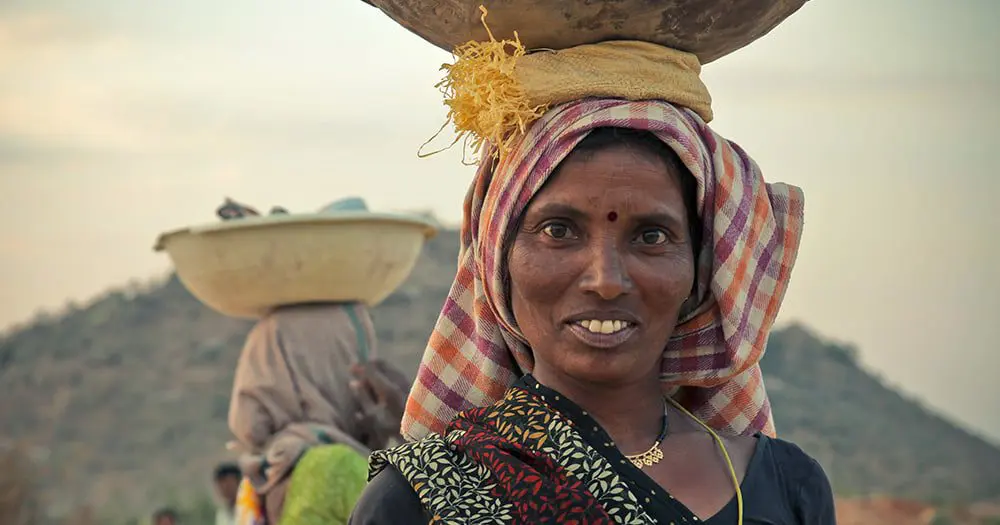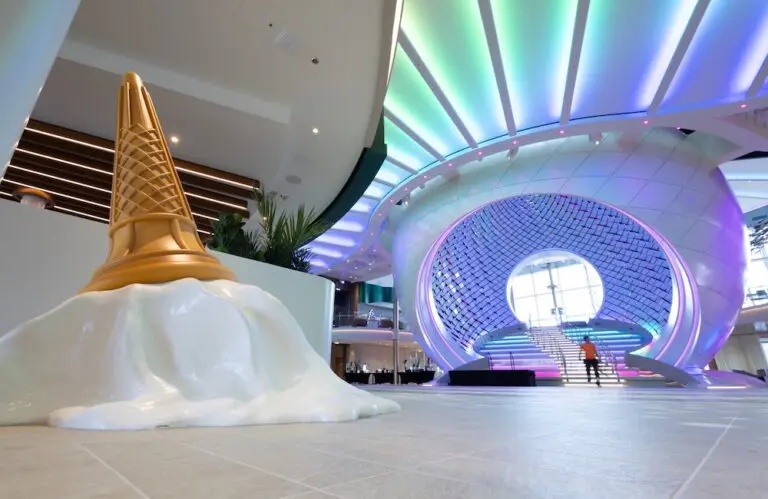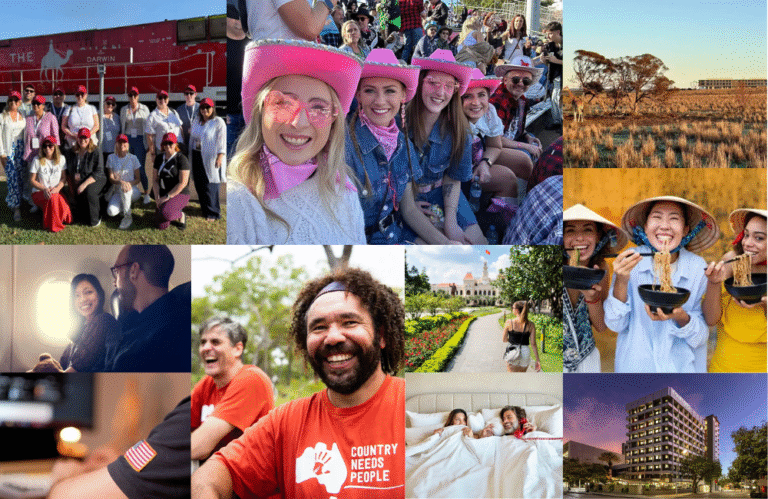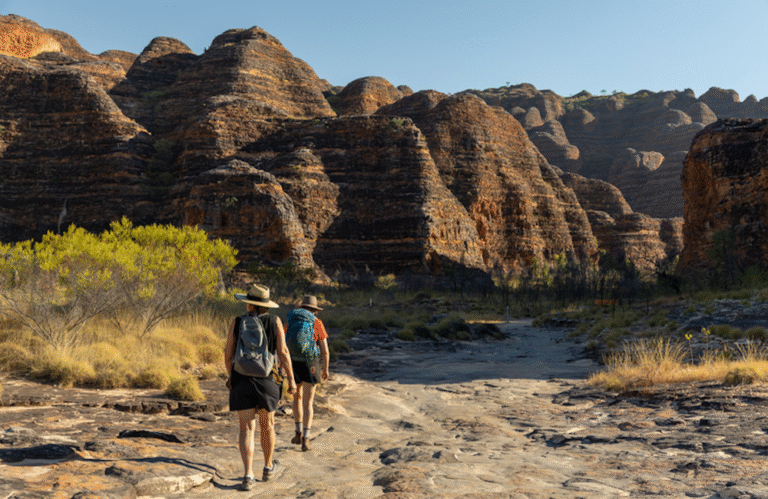Mark Luckey ask the question: “Before we travel to change the world, how about considering why we travel in the first place?”
Before long haul flights were a ‘thing’, it was a six-week cruise ship journey that gave travellers ‘status’ because they were clearly cashed up enough to go in the first place.
Unless they were an Italian immigrant in the 50s or a £10 Pom in the 60s and 70s of course, which was deemed more of a ‘life opportunity’.
I did it in the 90’s for a year of ‘resume improvement’ and life experience. As a 20-year-old at the time I was seen as a real out there risk taker which made getting jobs very, very easy. The Internet was new and I had no idea what a ‘social capital seeker’ – one of the Amadeus Traveler tribes – was back then.
Before social media (yes there was a time believe me), bragging rights meant you came home with a tattoo, 12 rolls of photos to develop and/or a girlfriend who didn’t speak English.
Two out of three ain’t bad, I came home from the UK single and with $16.
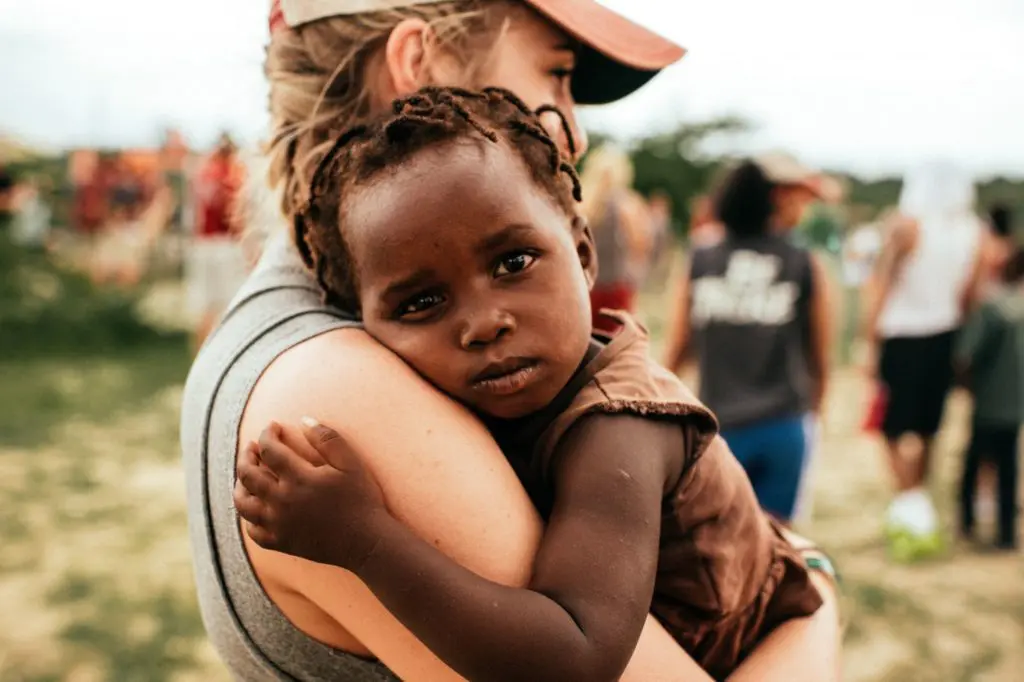
More recently, ‘Habitat for Humanity’ has brought ‘ethical’ travel to the mainstream. Piece by piece, changing the world. Give away your holidays to dig holes and move bricks whilst moving the individual mindset. Sean Penn – authentic. Awesome.
So where do the morals lie in travel? Isn’t getting on a plane bad for the environment? Social media means judgement by the masses is just around the corner no matter what you do.
How about the elephant in the room; those planes spew out a lot of dirty air. Remarkably, it’s actually about three times more efficient per person per mile per gallon to travel by plane then it is by the average car. But what if it’s for a holiday? Moral grey zone. Maybe a nuclear powered submarine would make more sense.
“Stay at home and save the planet.”
“Sorry mate, I’m going to surf in Kuta but I will pick up some rubbish on the beach while I’m there.”

What about staying five star? Daily freshly bleached towels, disposable plastics, wasted food, day long air conditioning. The Hilton hotel tell me to hang up my towels is nice, but where is the accountability? Do I support hotels that support the environment? Do I believe them? Should I have to do that for them?
Wealthy people should travel! Us wealthy foreigners (don’t kid yourself, if you were born in Australia you are phenomenally wealthy on the global scale) bring in valuable dollars to struggling economies with a lower cost of living. Sharing the dollars around. Well, to the hotel groups at least, but do the locals benefit?
Do Travel Agents have a moral obligation to customers when booking a trip? Or do we encourage people to leave their morals at customs when forking out for a big trip.
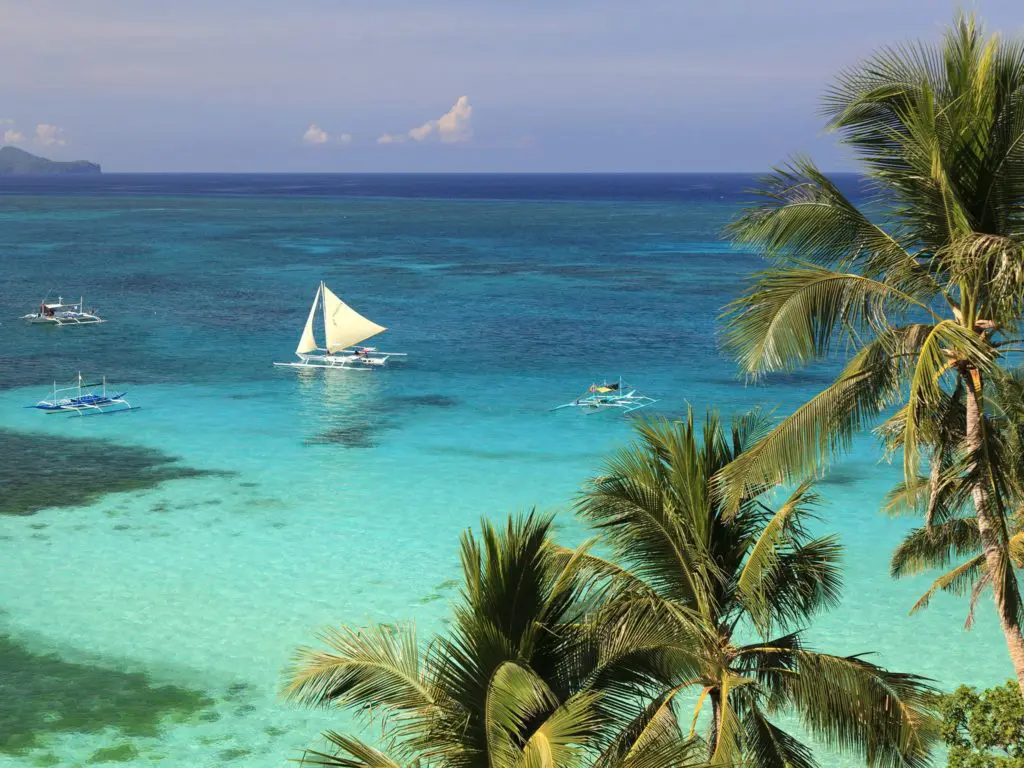
“Boracay Island, lovely this time of year. Clear water. Windsurfing. Lots of dirty old men preying on the 14 year old locals. Probably best you avoid a lazy spliff on the beach though.”
“USA, so big , so bright and colourful, but you do look a little bit Mexican so probably best you stay away from the border.”
“Tokyo! Astounding metropolis! They also have their ‘Spring Whale’ carnival on just now.”
“Australia, second verse of their national anthem says there is room for everybody, unless you are an asylum seeker.”
Does going to these countries support these initiatives? You can’t deny travelling their funds the government.
Globalisation makes travel easy, more accessible, more affordable, and more complex.
Should Travel Agents have a moral responsibility? Could it be a point of difference if in booking a holiday, you made a recommendation based on not just a great trip, but ultimately, what that trip means you are supporting or endorsing.
It’s the humanity and potential for morality of the Travel Agent that distinguishes them from a website. It’s the opportunity to build great holidays which enable their customers to #traveltochangetheworld.
KarryOn is proud to support this story as another fine example of our 2017 ‘Travel to change the world’ initiative. You can help by sharing this story to raise awareness and using the hashtag #traveltochangetheworld when you see good will or sustainable initiatives in travel.


